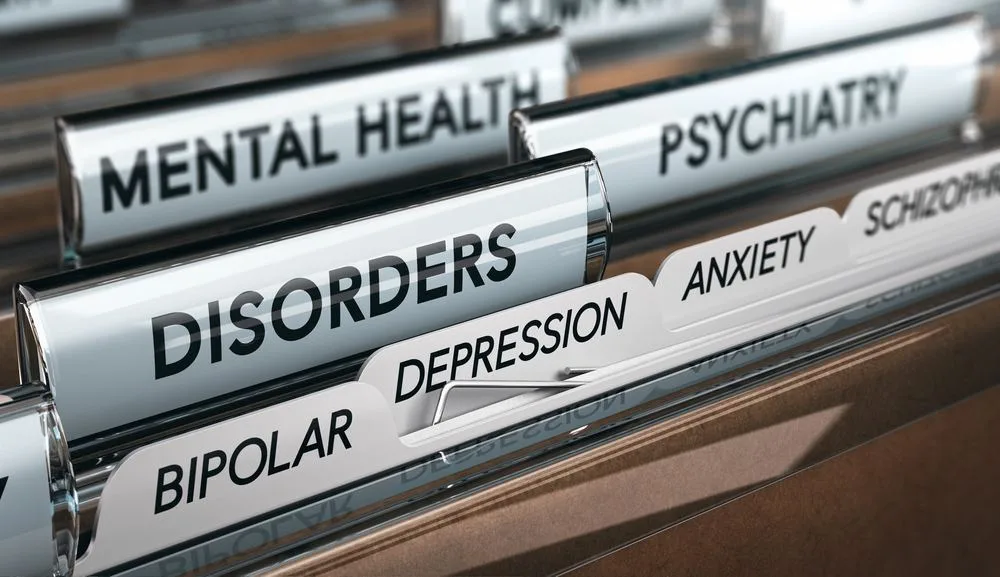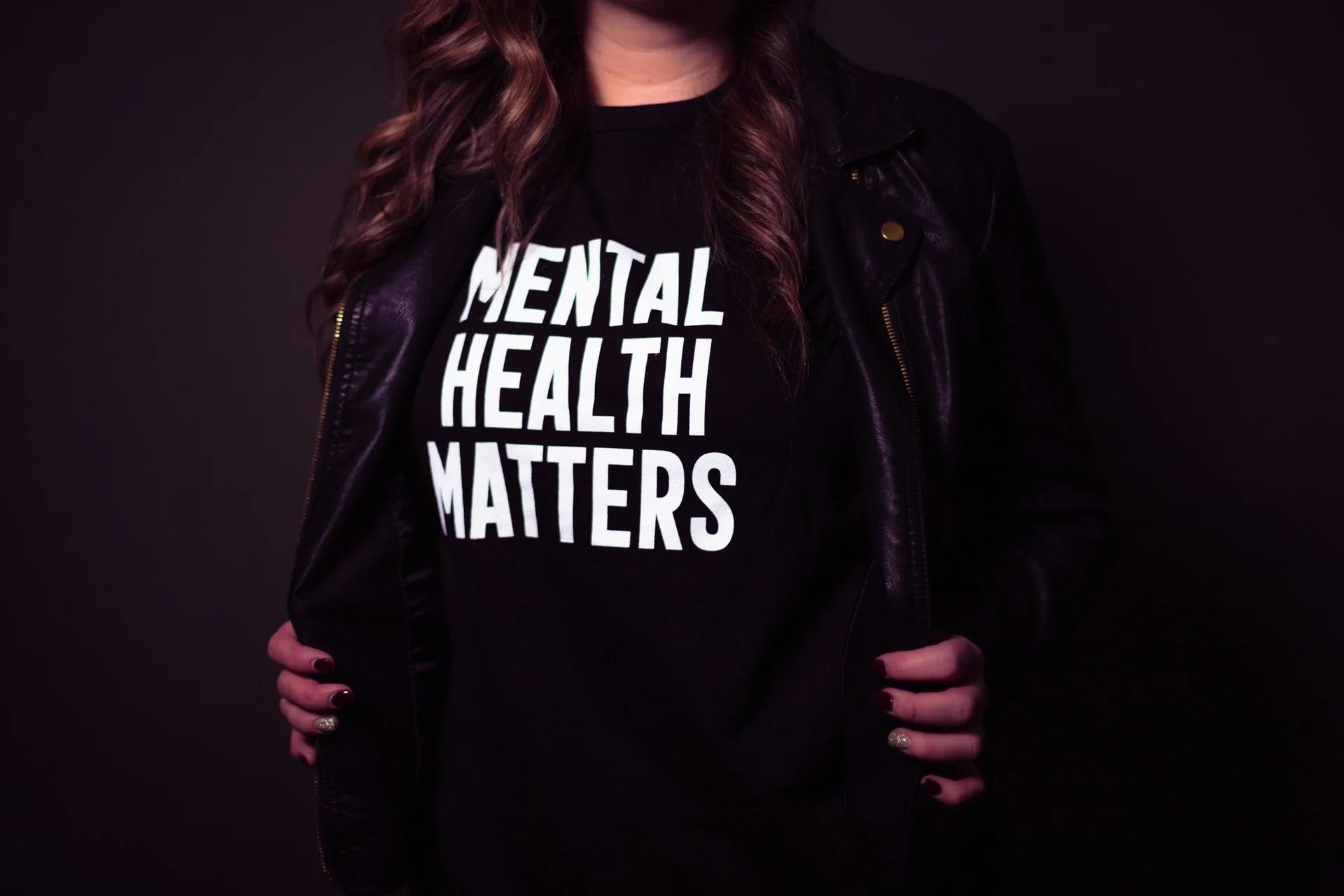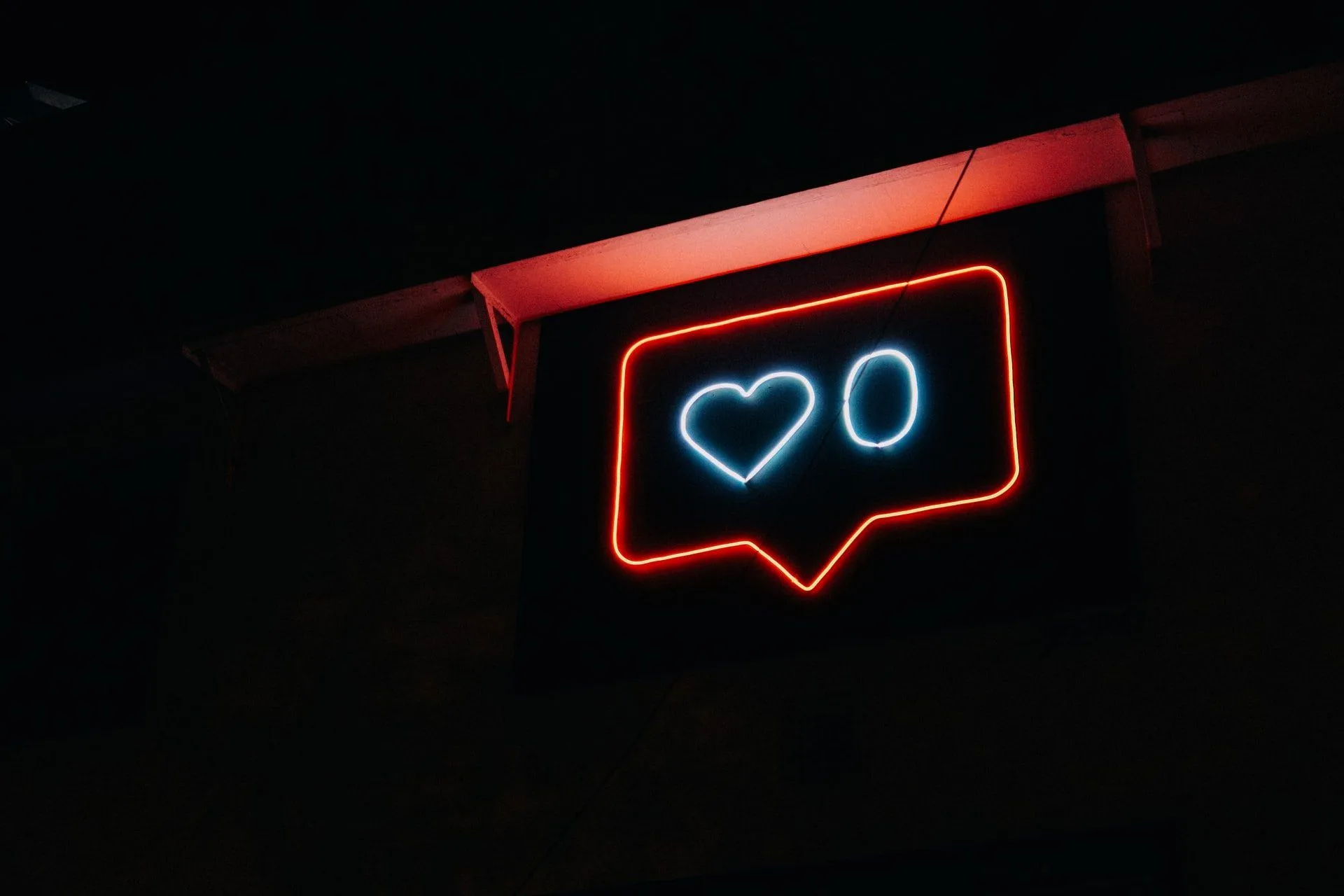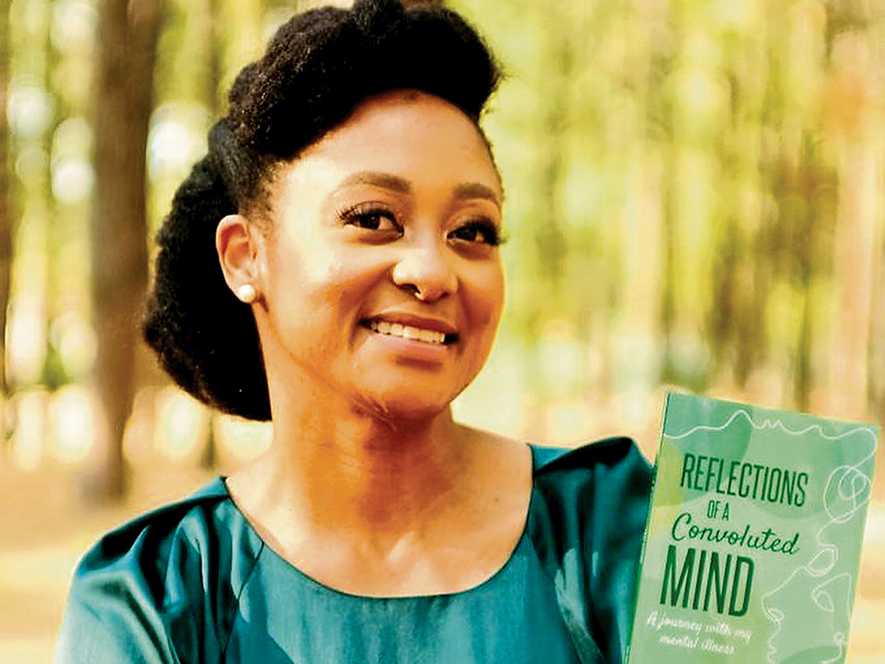According to the World Health Organization, bipolar disorder affects around 45 million people worldwide. Notable names that have been diagnosed with the condition include Demi Lovato, Selena Gomez, Mariah Carey and even Frank Sinatra. However, despite the fact that these notable names, sans for Sinatra, have been open and honest about their conditions, there are still those trained to attach a stigma to mental illnesses.
The past few years have definitely been daunting, and it’s become clear that we are in the midst of a mental health crisis. Therefore, it’s important to shed light on mental wellness, especially if we want to break the stigma and help those around us.
This is why Longevity LIVE has created Wellness Wednesdays – a weekly show hosted by the founder of the World of Longevity, Gisèle Wertheim Aymés that will help create the conversation around mental health. Joined by a different expert each week on @longevity_live. Gisèle and her guests will help you take the necessary steps to improve your mental health, as well as raise awareness around mental wellness.
Dr. Samke Ngcobo Opens Up About Mental Health Journey
Dr. Samke Ngcobo is a medical doctor and author who was diagnosed with Bipolar disorder at the age of 14. While the doctor is now a strong advocate for mental health, having founded Sisters for Mental Health, a mental health organization, that does not mean that she didn’t struggle with accepting that she had the condition,
“As much as the intervention was very early on in my life, I did not just come to accept that I have a condition called bipolar disorder.”
Mental health stigma

Olivier Le Moal/Shutterstock
Now while there were various factors that affected how Dr. Ngcobo dealt with her diagnosis, it would be naive not to address how stigma influenced the way she addressed the diagnosis,
“At that time, I was subjected to cultural, social, and all sorts of stigma related to my illness. They thought I was bewitched, they thought I was demon-possessed. There were so many things that were said about me at the time”
Dr. Ngocobo adds that as a result of this stigma, she felt incredibly isolated, even when those in her community attempted to “help” her,
“I remember very vividly a time when people from my church community came to pray for me in the hospital. I was ill because of a bipolar episode…When they came, they started to pray, but the look of intensity on their faces is what stood out for me – there was no compassion…As a child, you perceive it as if you’ve done something wrong.”
Dr. Ngcobo makes it clear that when you have a mental illness, you have not done anything wrong for people to mistreat you, but, unfortunately, people see it differently.
She shares that during the prayer session, she was made to scream out the name of God and Jesus and in hindsight, she realizes that they were attempting to cast out demons and this made her feel that she had done something wrong, and as such, she wanted nothing to do with a God who ‘puts demons into your people.’
However, with that experience behind her, she realizes that there is a serious disconnect when it comes to educating people about mental health and mental illness,
“There are so many misconceptions, misinformation that people carry with them. And it can be a very dangerous thing.”
The road to acceptance
“I took almost 20 years to accept the [bipolar] diagnosis. I acknowledged it intellectually. But that acceptance to make peace, to have the competence to speak about it is something that has been a very long journey.”
A mental health diagnosis is definitely something that can take time for one to accept, and Dr. Ngcobo understands this all too well, especially because of the idea that potential people might question her abilities as a medical doctor. However, for her, the turning point came in 2017 during one of her admissions into a psychiatric facility.
“It was pivotal in my life as my current psychiatrist, who was so comprehensive and managing me, engaged in the help of an occupational therapist and engaged the help of a psychologist, and it was a very well-rounded intervention,” says Dr. Ngcobo.
She adds that for her, this was a shift as her my doctor then helped her understand what it means to have bipolar disorder,
“For me, it was a them versus me situation. I thought that by being bipolar, I could get away without needing any help, unlike others with other forms of mental health conditions. However, this couldn’t be further from the truth.”
Breaking the (self)-stigma
“We mentioned the aspect of cultural stigma, religious stigma, social stigma, which is very rampant worldwide, and especially in our context of South Africa. But one of the biggest things I feel that we need to overcome is the self-stigma because these many people who live with mental illness have been diagnosed, but it’s such a tightly held secret.”

Photo by Matthew Ball on Unsplash
Dr. Ngcobo adds that this secrecy and the shame that comes with it is what propels her to act and have an open and honest conversation about mental health. She adds that she passionately believes that having people with mental illnesses being at the forefront of the conversation is what will move them forward, and help others overcome their self-stigma.
For instance, she is a medical doctor that has worked with patients who live with mental illness. Dr. Ngcobo revealed that it was only when she started speaking about her own personal journey did she tap into a community that she had previously not been privy to.
“I found that it would be so empowering for people to see that a mentally ill person is not walking on the streets, digging in the bins…If I come forward, as somebody who has a well-respected profession, I believe that having these conversations that we’re having now is what will change the narrative…
Us who live with mental illnesses to talk about it openly, from our perspective, is very empowering and educational to other people so that people know what our internal world entails.”
Mental wellness requires a multidisciplinary approach
When it comes to maintaining mental wellness, especially when you have a mental health disorder, Dr. Ngcobo acknowledges that you will need to adopt a multidisciplinary approach. She admits that oftentimes when people think of mental health assistance, they think of prescribed pills or psychologists. However, while true, the role of an occupational therapist, social worker, and nurse is still warranted.
In recent years, Dr. Ngcobo has become a huge fan of occupational therapy, especially because it doesn’t only have to focus on mental illnesses, but instead on how to develop life skills that will support your functionality.
“For the sake of my illness, sleep is a very critical part of my life. There are people who are in that and are capable able to without the limitations that I have. So I befriended my illness. I know what my illness allows me to do. I know what it does not allow me to do, and I’ve made peace with that and made the most of it.”
Living through a mental health crisis
According to the World Health Organization, the COVID-19 pandemic caused a 25% increase in the global prevalence of anxiety and depression. To say that we are in a mental health crisis would be an understatement.
For Dr. Ngcobo, the COVID-19 pandemic made us reckon with ourselves and face our own struggles, and in doing so, it brought the mental health conversation to the forefront. In doing so, it helped to shatter all the stereotypes associated with having a mental illness, especially because so many public figures have become open and honest about their mental health struggles. This in turn has inspired others to do the same.

Mental Health Photo by Priscilla Du Preez on Unsplash
Creating a safe space
If we are going to adequately address the mental health crisis, it’s important for us to know how to create a safe space for those around us.
Speaking about her experiences, Dr. Ngcobo shares that when she went into the hospital, she would have appreciated it if she had not been treated like she had done something wrong, adding that empathy can go a long way.
“We need to have safe spaces where we are able to talk and have people that we are accountable to in terms of checking in. If there’s a friend we talk with every week, and then they suddenly become quiet, let’s be more inquiring and not assume that they’re quiet because they’re too busy, and they don’t care.
Let’s probe deeper and reach out, and let them either say that they’ve been busy with work or that they’ve been feeling overwhelmed and are struggling to cope.”
Building mental resilience
Now, while Dr. Ngcobo admits that not everyone will be diagnosed with a mental illness, the truth is that everyone on this planet, at one point or another, will have mental health difficulties to some degree or the other. As such, it’s important to learn how to become mentally resilient.
For Dr. Ngcobo, being proactive about our mental health is one way to build mental resilience, adding that we shouldn’t wait until we get a diagnosis. Instead, we need to approach our minds proactively and adopt habits that will help us protect our mental well-being.
Dr. Ngcobo points out that while seeing a psychologist can be expensive, there are other ways in which you can protect your mental health by asking yourself the following questions:
What do you do for yourself? How many hours of sleep do you give yourself? Work-wise, do you have those healthy boundaries between work and home? When do you stop answering emails? When do you detox from social media? What do you follow on social media? When you follow the social media pages, how do you feel when you look at the content?

Photo by Prateek Katyal on Unsplash
Conclusion
Now, while there is no endpoint to it when it comes to having a mental health disorder, that doesn’t mean that the condition cannot be adequately managed. There are steps you can take as an individual to help you manage your condition, such as by asking yourself how to remain proactive in order to prevent a relapse.
“What do I do as someone with bipolar disorder to ensure that I have a good quality of life?”
Dr. Ngcobo shares that she knows what her triggers are and, in addition, she has a healthy relationship with both social media and the news. Additionally, she is receptive to her loved ones offering feedback, especially when they believe that she’s not where she is usually mentally. If that’s not enough, Dr. Ngcobo also shares that she’s very quick to say when she’s struggling.
Sadly, we live in a society that glamorizes carrying your struggles on your own and often keeps those struggles to yourself. However, Dr. Ngcobo believes that the best way to counteract this stigma is by reaching out for help, sharing that admitting to having mental health struggles is not a sign of weakness, but rather a sign of bravery.

patronestaff/shutterstock
Who is Dr. Samke Ngcobo?
Dr. Samke Ngcobo is a medical doctor and author who was diagnosed with Bipolar Disorder at the age of 14. She identifies with her illness primarily, as it arrived prior to her qualification as a doctor.
It is her belief that the best storyteller about mental health issues is the one experiencing them and it is a journey filled with many struggles, triumphs, and failures. At best, her life is stable, calm, and peaceful. At worst, it is turbulent and volatile with a myriad of challenges.
She founded Sisters For Mental Health because she believes that the mentally ill deserve and need to speak in their own voice and to be heard from their own perspective. It is her wish that someday, mental illnesses will be regarded with the same seriousness and importance as that other physical illnesses.
She believes in advocacy and activism for the rights of those like her.
May her struggles ease the load and burden of those like me as she fully empathise and can relate with the suffering that is often silent and invisible.
WATCH THE INTERVIEW
The video interview with Dr. Samke Ngcobo contains the entire dialogue of this interview, and you can watch it below.
View this post on Instagram



![women [longevity live]](https://longevitylive.com/wp-content/uploads/2020/01/photo-of-women-walking-down-the-street-1116984-100x100.jpg)










